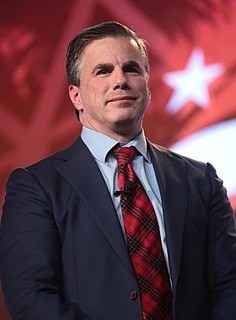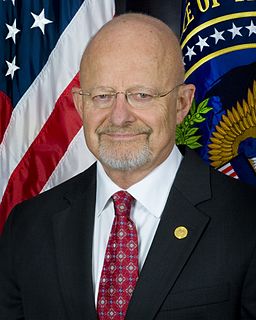A Quote by Reince Priebus
Some of the conflict of interest laws do apply to the president, particularly The Emoluments Clause to "The Constitution," which prohibits any type of benefit from a foreign government.
Related Quotes
"The Constitution" has something called The Emoluments Clause. That's just a fancy, 18th century word for no foreign government payments. And Donald Trump is collecting foreign government payments and other benefits throughout his business.It is a direct violation of "The Constitution" and unless he divests, not just operations, he must divest from all business interests or he will be in violation of "The Constitution" from day one.
I am concerned that Donald Trump walks into the White House a walking conflict of interest in violation of the emoluments clause of the constitution, and the Stock Act. It is important to investigate whether there are financial levers, not just Russia - China, the Emirates. Because he will never make America great again - I don't believe he ever will, but he will not do so if he's beholden to.
Impeachment is our system's last resort for someone who treats himself or herself as above the law, the most relevant thing is whether this president, by his recent course of action, on top of his violations of the foreign corruption or emoluments clause, this president has shone that he cannot be trusted to remain within the law and our constitution's last resort for situations of that kind is to get the person out of office.
The equal protection standard of the constitution has one clear and central meaning - it absolutely prohibits invidious [repugnant] discrimination by government...Under our Constitution, any official action that treats a person differently on account of his race or ethnic origin is inherently [by nature] suspect and presumptively [probably] invalid...Under the Constitution we have, one practice in which government may never engage in the practice of racism - not even "temporarily" and not even as an "experiment."
A constitution, therefore, is to a government what the laws made afterwards by that government are to a court of judicature. The court of judicature does not make the laws, neither can it alter them; it only acts in conformity to the laws made: and the government is in like manner governed by the constitution.
The laws are, and ought to be, relative to the constitution, and not the constitution to the laws. A constitution is the organization of offices in a state, and determines what is to be the governing body, and what is the end of each community. But laws are not to be confounded with the principles of the constitution; they are the rules according to which the magistrates should administer the state, and proceed against offenders.
And government (to define it de facto, or according to modern prudence) is an art whereby some man, or some few men, subject a city or a nation, and rule it according to his or their private interest; which, because the laws in such cases are made according to the interest of a man, or of some few families, may be said to be the empire of men, and not of laws.
The states have authority to interpret the Constitution, enforce it, and protect the people from violations of it by the federal government In the first place, there is not a syllable in the plan under consideration which directly empowers the national courts to construe the laws according to the spirit of the Constitution, or which gives them any greater latitude in this respect than may be claimed by the courts of every State.

































